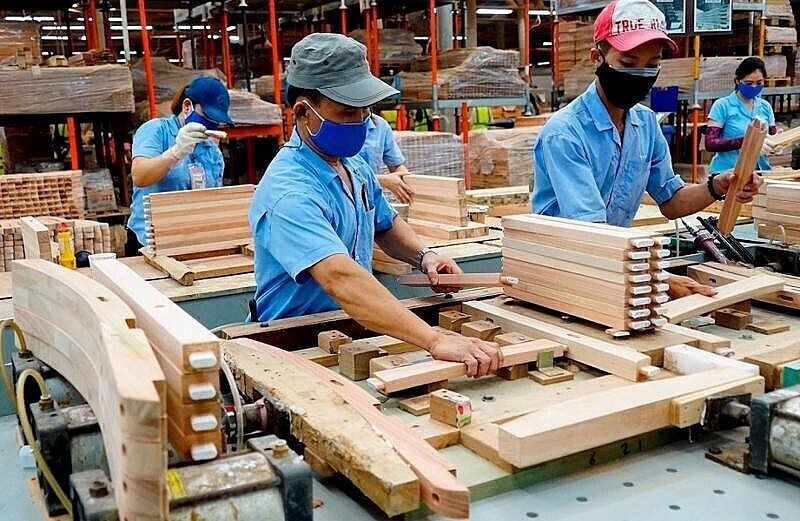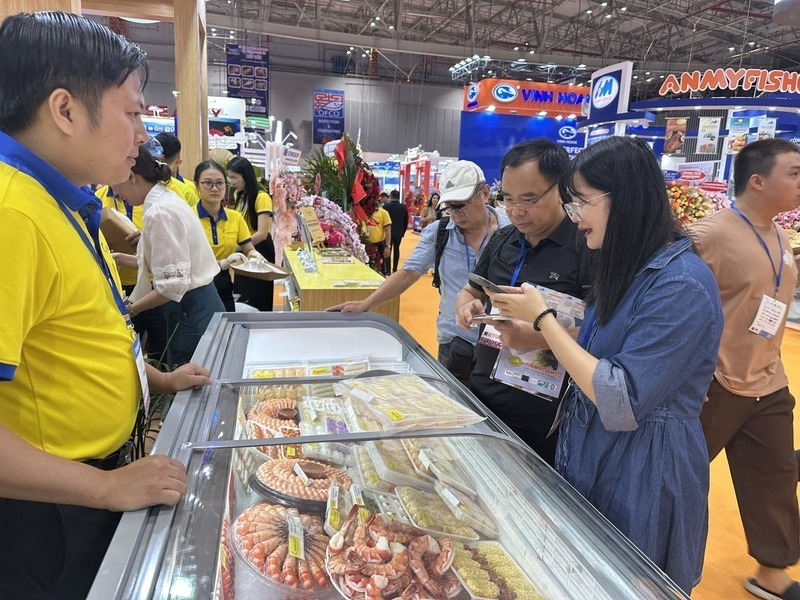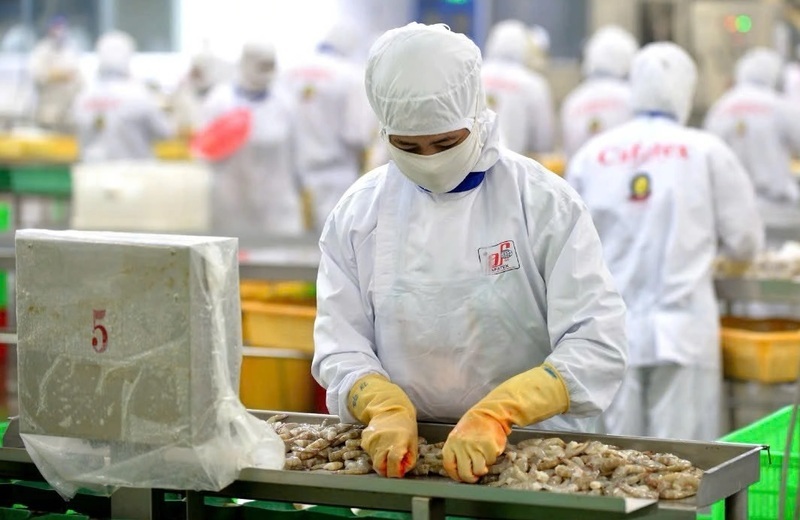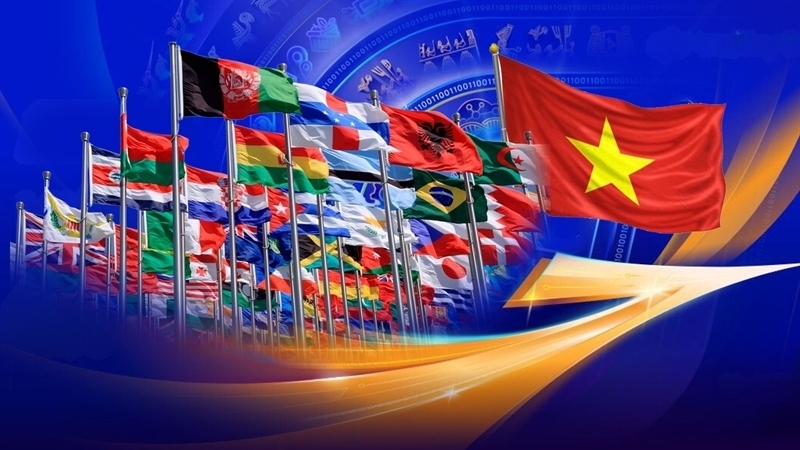
Wood exports rise 12.5% to USD 1.6 billion in Jan
19:05 | 23/03/2025 17:34 | 24/02/2026Trade
Driving force to strengthen Vietnam - Israel trade
Israel remains Vietnam’s third-largest trading partner, fourth-largest export market, and second-largest import market in the Middle East, while Vietnam is among Israel’s most important commercial partners in Southeast Asia. The two economies complement each other, with Israel importing many of Vietnam’s key export strengths, particularly agricultural and aquatic products.
In the first 10 months of 2025, Vietnam’s exports to Israel reached approximately USD 700 million, up 4.1% year-on-year. Export turnover for the full year is projected to reach around USD 880 million if no major market disruptions occur, an estimated increase of 10.75% compared with 2024. Vietnam currently exports more than 70 categories of goods to Israel, including a wide range of agricultural and seafood products.

Trade Counsellor Le Thai Hoa updates on bilateral trade developments.
According to Trade Counsellor Le Thai Hoa, Israel is the largest Middle Eastern market for Vietnamese seafood, importing more than USD 100 million annually, equivalent to 12-13% of Israel’s total seafood imports from all global suppliers. Other key Vietnamese exports with strong potential include pepper, cashew nuts, desiccated coconut, processed foods, and rice, many of which have already established a stable foothold in the Israeli market.
A significant boost to bilateral cooperation comes from the Vietnam - Israel Free Trade Agreement (VIFTA), the first FTA Vietnam has signed with a Middle Eastern country and the first Israel has signed with a Southeast Asian partner. Approved by both governments and effective from 17 November 2024, VIFTA combines traditional and modern commitments and marks a new phase of economic partnership.
Under the agreement, Israel commits to eliminating tariffs on 92.7% of tariff lines, including 66.3% removed immediately and 26.4% phased out over 3-5, 5-7 or up to 10 years. Vietnam will liberalize 85.8% of tariff lines by the end of its roadmap. In total, around 11,446 tariff lines will benefit from preferential treatment. Israel also offers zero-tariff quotas for Vietnamese agricultural products such as eggs, meat, potatoes, carrots, cauliflower, mushrooms, and tuna. Most processed fashion and footwear goods under HS codes 61-64 received immediate duty elimination.

Vietnamese seafood maintains a solid presence in the Israeli market.
“With these tariff advantages, VIFTA is expected to be a major catalyst that elevates Vietnam-Israel relations,” Counsellor Hòa said. “Once fully implemented, the agreement will boost two-way trade and expand cooperation in industry, science and technology, and innovation.”
Israel’s demand for processed, value-added goods
Although Israel’s population is modest at about 10 million, it is a high-purchasing-power market. Annual imports exceed USD 100 billion, including more than USD 25 billion in consumer goods and food. Israeli enterprises are professional, fast-moving and serious in commercial transactions. They prefer: Direct purchasing from manufacturers; stable supply and transparent payment, in-person meetings and onsite inspections, ready-to-sell, high-value processed products.
Due to religious and cultural factors, Jewish-owned firms often require Kosher certification, while Arab-owned firms typically require Halal certification, particularly for food and consumer goods.
Israel has also gradually shifted from unique domestic standards to internationally recognized regulations, especially those of the EU and the US, in an effort to reform and open its market. Nonetheless, inspection of food and consumer goods remains strict.
Trade Counsellor Le Thai Hoa highlighted several key points that Vietnamese enterprises should consider when expanding into the Israeli market:
First, leverage VIFTA effectively to accelerate exports and maximize preferential tariffs. Second, understand market habits Israeli buyers favor processed products with higher value addition. Third, ensure strict compliance with quality and certification requirements, including Kosher, Halal, EU, and US-aligned standards. Fourth, offer high-value, competitive products, respond quickly to buyer inquiries, and meet shipping and packaging expectations. Fifth, expand cooperation with Israeli technology and engineering firms. Finally, monitor regional political and security developments to safeguard trade operations.
The Vietnam Trade Office in Israel has published several handbooks to support exporters, including guides on agricultural and food import regulations, commercial import procedures, and Israel’s updated import reform policies.
VIFTA negotiations, launched in December 2015, lasted eight years with 12 formal negotiating rounds. Based on Government Resolution No.110/NQ-CP, Minister of Industry and Trade Nguyễn Hồng Diên signed the agreement on behalf of Vietnam. The FTA not only facilitates deeper penetration of Vietnamese goods into Israel but also enhances opportunities for technology exchange, investment cooperation, and high-skilled workforce development.

19:05 | 23/03/2025 17:34 | 24/02/2026Trade

19:05 | 23/03/2025 16:21 | 24/02/2026Science - Technology

19:05 | 23/03/2025 14:47 | 24/02/2026Trade

19:05 | 23/03/2025 14:47 | 24/02/2026Cooperation

19:05 | 23/03/2025 14:45 | 24/02/2026Trade